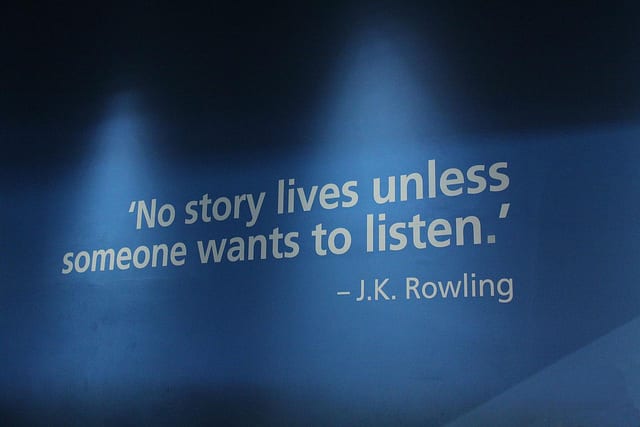Think Big to Enlarge Career Prospects!
By UCL Careers, on 17 November 2015
At UCL Careers, my role is to advise students and graduates on how to sell themselves on paper, bringing them closer to their dream jobs (…or closer to securing part time work to survive!). Matters of gender inequality are all pervasive, locally and globally, even when it comes to the job application process! Studies have shown that women are unlikely to apply for a job role if they don’t meet its essential criteria; men on the other hand, tend to apply for roles even when they don’t meet the specs, and yes, they do get the job in some cases! Knowing this, I feel compelled to give everyone the strength and knowledge to overcome barriers, psychological and practical that hinder their decisions in applying for great roles.
Perceived Gender differences and job applications
Last year, Tara Sophia Mohr discussed Hewlett Packard’s report for Harved Business Review, which revealed that men apply for roles even when they only meet 60% of the job’s person specification. Meanwhile, women, they found, would not apply unless they could check off 100% of the requirements. The findings did not list a lack of confidence as the main issue!
What’s going on here then? The top reason that both men and women gave for not applying was a strong belief that they wouldn’t be hired unless they met all the requirements: “I didn’t think they would hire me since I didn’t meet the qualifications, and I didn’t want to waste my time and energy.”
Belief is a powerful force. It’s the foundation upon one’s success or failure. Let’s break belief down into thought. It starts at thought. For women to have the same opportunities as men, they need to start thinking bigger. The men and women who didn’t apply had a mistaken thought that they wouldn’t be considered at the hiring stage. The problem was not a lack of confidence in applying but a “mistaken perception about the hiring process.” Now that’s eye-opening! We need to remember that recruiters are human; aspects of selection are subjective.
The study also showed that 22% of women didn’t apply because of a fear of failure. So far, limiting beliefs are a key reason for gender inequality at the application stage. Looking closer, this means there is a tendency to “follow the rules”. Mohr, women’s leadership coach highlights that during socialisation, particularly at school, there is a clear gender difference, with females being told what to do and then being awarded for it and males often “misbehaving” or breaking the rules. This correlates well to why women aren’t applying for the jobs they think are beyond their reach. This is not to say however, that there aren’t real concerns and biases when it comes to hiring—but despite these hurdles women should persevere, take risks, and think big, as these are all the qualities of highly successful people.
“First appearance deceives many.” ~Ovid.
Don’t always believe in what appears true when it comes to the guidelines for job applications. Assume nothing and interrogate everything! Like the majority of men who apply without the essential qualifications, believe you have a shot and change your thought-processes. Pay more attention to transferable skills and don’t deny yourself outstanding career prospects.
For students and graduates who fear rejection, both male and female, look closer at what you see as weaknesses – how can these be transmuted into strengths? Learn how to sell your experiences well by attending our Skills4Work programmes and numerous other events to help promote your professional image more effectively.
Attend career fairs you wouldn’t usually think of going to. There’s evidence to suggest that certain types of fairs attract more men than women. You may surprise yourself and feel motivated to apply for companies and organisations you didn’t think would recruit you because of mistaken beliefs about them and your own self-perceptions. A discussion with a recruiter or representative is a chance to leave your mark and build a connection, which may work to your advantage during the application stage. This networking opportunity can also lead to insights into their hiring processes and remove doubts you’ve attached to applying for the role.
Here’s a tip: ask questions you wouldn’t find answers to online or in a guidebook!
How thinking big can lead to big results
The solution to imagined and perceived obstacles then, is to expand one’s thinking outside the paper box of checklists and beyond fear of rejection. And yes, a certain element of this is to nurture belief in yourself and resilience towards failing.
“There is no force equal to a woman determined to rise.” ~ W.E.B Bois
Write down the thoughts and fears that hold you back from applying. What action steps can you take to not internalise short-term setbacks? There is much to learn from failures. Without them you wouldn’t adapt, innovate and try something new. As leadership expert Robin Sharma says, “The riskiest thing you can do is not take risks.” Why? Because unless you do, you will not grow into your best self. So the first step is encouraging a shift in perception about failure. When you work with this fear, rather than avoid it, you have room to see the bigger picture, to think bigger and plan ahead better. Forbes author, Jenna Goudreau writes, “Women at the top aren’t fearless. They move toward their fear to continually challenge themselves.”
A long-term focus and commitment to goals is a result of this shift in mindset. Women in top managerial positions are big picture thinkers. EY’s Global Market Leader Uschi Schreiber champions ‘thinking big’ and understands very well that limited thoughts hold women back from reaching higher positions in industry. Her big successes have come through aiming high. Earlier this year in The World Post she stated that: “Using the talent of women can bring powerful positive change and increase the likelihood of better outcomes for us all.” If you feel you have the talents to do the job well, then apply for that job. It’s the employer who will lose out to the positive results you can drive, not you!
That said: take more action. Don’t react to job opportunities using your habitual thinking patterns. Use those valuable critical powers developed through academia. What can you do to frame your expertise further? Call the recruiter? Initiate contact with employees through LinkedIn?
Pause, investigate further and think creatively.
Moral of the story: Don’t always believe in what you see on the surface, challenge the rules, and explore the strong feelings you have for wanting to apply for the position that appears out of reach. Think big and feel your way to success, the rest is just noise.
– Payal Patel, Applications Adviser, UCL Careers
 Close
Close



